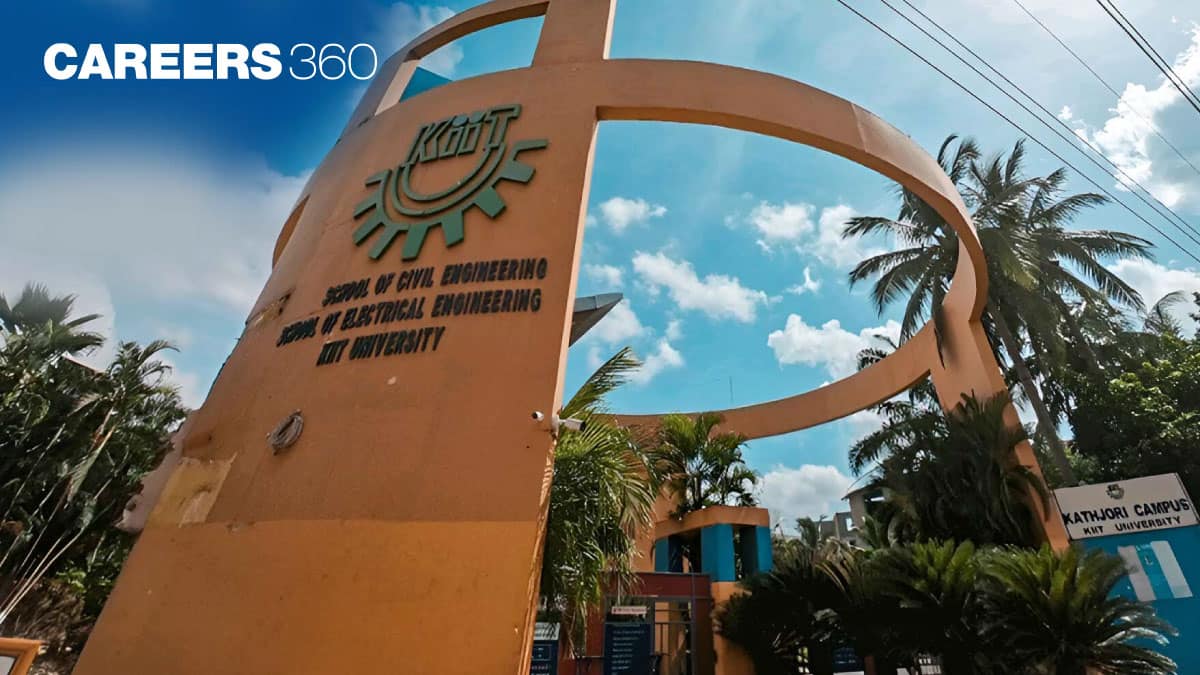KIIT School of Electrical Engineering Bhubaneshwar Admissions 2025 Started; Check Details
KIIT School of Electrical Engineering Bhubaneshwar has started accepting applications for batch 2025 which includes various programmes at different levels. Candidates meeting the specified eligibility criteria will be considered for KIIT School of Electrical Engineering Bhubaneshwar admissions. B.Tech and M.Tech in specialisations like Electrical Engineering, Computer Engineering and more are offered under the KIIT School of Electrical Engineering courses.
This Story also Contains
- KIIT School of Electrical Engineering Bhubaneshwar Dates
- KIIT School of Electrical Engineering Bhubaneshwar Eligibility Criteria 2025
- KIIT School of Electrical Engineering Bhubaneshwar Selection Process 2025
- KIIT School of Electrical Engineering Bhubaneshwar Fees 2025
- KIIT School of Electrical Engineering Bhubaneshwar Fee Details
- KIIT School of Electrical Engineering Bhubaneshwar Contact Details
- About KIIT School of Electrical Engineering Bhubaneshwar

Candidates can apply for admission through online mode. However, candidates should meet the KIIT School of Electrical Engineering course eligibility criteria before applying. Candidates having a minimum aggregate of marks in their 12th and bachelor's are eligible for the courses at KIIT School of Electrical Engineering Bhubaneshwar.
KIIT School of Electrical Engineering Bhubaneshwar Dates
Last Date to Apply/Register | (1st Phase) 8 April 2025 |
Date of Examination | 16 April - 20 April 2025 |
KIIT School of Electrical Engineering Bhubaneshwar Eligibility Criteria 2025
Course | Eligibility Criteria |
|---|---|
B.Tech
| Pass in 10 +2 or with at least 60% marks in PCM. |
M.Tech
| Graduate in B.E. or B.Tech. or equivalent degree. |
Note: Candidates are advised to check the eligibility criteria before applying.
How to apply for KIIT School of Electrical Engineering Bhubaneshwar?
Step 1: Visit the official website: electrical.kiit.ac.in
Step 2: Register with an email ID and mobile number
Step 3: Verify both the email address and the mobile number via OTP
Step 4: Fill in the Application form online
Step 5: Select the desired course
Step 6: Submit the duly filled application form
Note: Fill out the application form without leaving any blank section.
KIIT School of Electrical Engineering Bhubaneshwar Selection Process 2025
Counseling and seat allocation will be purely on merit basis i.e. based on the performance in the entrance examination. The counseling schedule will be published on the KIIT Website after the declaration of results. Candidates have to attend the counseling as per the schedule.
KIIT School of Electrical Engineering Bhubaneshwar Fees 2025
KIIT School of Electrical Engineering fees for the programmes are mentioned. Candidates interested can check the fees for the courses given below.
KIIT School of Electrical Engineering Bhubaneshwar Fee Details
Course | Fees (per semester) |
|---|---|
B.Tech
| Rs 1,75,000 |
M.Tech
| Rs 1,20,000 |
KIIT School of Electrical Engineering Bhubaneshwar Contact Details
Address: School of Electrical Engineering
Campus-3, Patia, Bhubaneswar, Odisha, India 751024
Mobile Number: 9938708530
Email: info.electrical@kiit.ac.in
Website: electrical.kiit.ac.in
About KIIT School of Electrical Engineering Bhubaneshwar
KIIT School of Electrical Engineering provides placements to students in Maruti Suzuki, Whirlpool, IBM, JSW Energy and more. KIIT School of Electrical Engineering's highest salary package is Rs 13 LPA and the average package is Rs 6 LPA.
Kalinga Institute of Industrial Technology School of Electrical Engineering also known as KIIT School of Electrical Engineering established in 1997. It is a co-educational university approved by AICTE. It offers UG and PG courses such as B.Tech and M.Tech and KIIT School of Electrical Engineering facilities including hostels, air conditioned classrooms, gym and many other facilities.
List of Related colleges
Questions related to KIIT Bhubaneswar
On Question asked by student community
Among UPES Dehradun and KIIT, UPES Dehradun is considered to be the better colleges for admission into B.Tech Aerospace Engineering programme. The programme lasts 4 years and college provide all the practical experience to the students during internships.
The KIIT Law 2026 academic session is expected to begin in July 2026. Students can enrol by filling out the online application form.
Dear Arisha,
Yes with 3612 rank you well within the cutoff range, I mean even closing rank for CSE (ALLIED with AIML) IN general category has range around 5000-5500 in recent years, and woman candidates hold 30% reservation which further improve your position.
BEST OF LUCK...
Thanks
Yes, with a general woman rank of 3612 in KIIT. You have a strong chance of securing admission in CSEAIMIKIIT Bhubaneswar.. In previous years, the closing bank of CSE general neutral was around approximately 5000 and general women ran typically closer later often between 3212 to 4898. Show the current
Dear Candidate ,
With a NEET UG 2025 score of approximately 280 , you have a strong chance of getting admission at BDA seat at Kalinga Institute of Dental Sciences ( KIDS ) , Bhubaneswar , which is a part of KIIT university , especially if you actively participate in
Applications for Admissions are open.
Among top 100 Universities Globally in the Times Higher Education (THE) Interdisciplinary Science Rankings 2026
Amrita University B.Tech 2026
ApplyRecognized as Institute of Eminence by Govt. of India | NAAC ‘A++’ Grade | Upto 75% Scholarships
Amity University-Noida M.Tech Admissions 2026
ApplyAmong top 100 Universities Globally in the Times Higher Education (THE) Interdisciplinary Science Rankings 2026
Vignan's Deemed to be University B.Tech Admissions 2026
Apply70th University Ranked by NIRF | 80th Engineering Rank by NIRF | Accredited by NBA and NAAC A+
UPES B.Tech Admissions 2026
ApplyLast Date to Apply: 26th March | Ranked #43 among Engineering colleges in India by NIRF | Highest Package 1.3 CR , 100% Placements
University of Bristol, Mumbai Enterprise Campus
ApplyBristol's expertise meets Mumbai's innovation. Admissions open for UG & PG programmes
